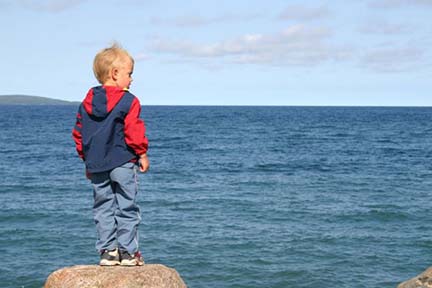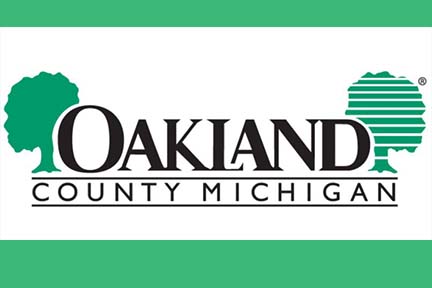
Great Lakes and Fresh Water Week, June 4-12
|
|

|
|

Pontiac, Michigan – The Michigan Green Communities (MGC) program has recognized Oakland County for its environmental leadership. The county achieved silver status for exemplary action in multiple categories, including planning, climate resilience and adaptation, energy efficiency, renewable energy, water conservation and protection, and mobility.
“One of my first pledges to the residents when I became the county executive in 2019 was to reduce greenhouse gas emissions at the county government campus in Pontiac and Waterford by 2030 and in the county overall by 2050,” said Oakland County Executive David Coulter. “I’m honored that the Michigan Green Communities program has recognized the county for the environmental sustainability plans we’re developing that will ensure future generations have a safe and clean county where they can live, succeed and thrive.”
Since hiring its first chief environmental sustainability officer, Oakland County has begun tracking and measuring greenhouse gas (GHG) emissions, developed a campus-wide sustainability plan, integrated solar energy in an upcoming renovation, and plans to install electric vehicle charging stations in two parking lot projects.
The county was also recently accepted into the 2022 LEED for Cities program which provides technical assistance to help communities reach their sustainability goals.
“You cannot manage what you do not measure – metrics and data are critical to sustainability – and we are already gauging our performance in reaching our sustainability goals,” Erin Quetell, Oakland County’s chief environmental sustainability officer, said. “The Michigan Green Communities Challenge is a great way for municipalities of all sizes to track and measure their sustainability successes.”
As part of the 2021 MGC Challenge, 44 participating local governments were awarded gold, silver, or bronze seals of achievement reflecting community leadership in areas such as energy efficiency, climate adaptation and resilience, recycling, environmental justice, and more. Ten communities received bronze certification, 12 received silver certification, and 22 received gold certification.
The MGC program is open to all local governments in Michigan. MGC is a sustainability networking, benchmarking, and technical assistance program. It guides and supports communities in adapting to a changing climate, protecting infrastructure, improving the quality of life for residents, and creating a more environmentally and economically sustainable future for the state of Michigan.
MGC is supported by the Michigan Department of Environment, Great Lakes, and Energy; the Michigan Department of Health and Human Services; the Michigan Economic Development Corporation; the Michigan Association of Counties; the Michigan Municipal League; and the Michigan Townships Association. More details about this program can be found at www.migreencommunities.com.


FOR IMMEDIATE RELEASE Gov. Whitmer Announces Michigan Now a Top State for Small Business Revenue Growth
LANSING, Mich. – Today, Governor Gretchen Whitmer highlighted new small business data indicating Michigan’s continued economic growth. According to Opportunity Insight’s Track the Recovery, January 2022 saw small business revenue in Michigan increase by 24% compared to January 2020, while the nation experienced a 6.9% increase over the same period. According to the Bureau of Labor Market Information and Strategic Initiatives, Michigan ranks tenth in small business revenue growth over the last two years.
“Small businesses are the backbone of our economy and they continue to create jobs and get things done,” said Governor Gretchen Whitmer. “The data continues to show that small businesses are at the forefront of driving innovation, jobs and economic growth in our state. I’m committed to getting small businesses the support they need to retain and recruit more workers and expand operations so we can keep this momentum going and see even better numbers in the future.”
This latest positive data closely follows the recent announcement that Michigan had the fastest small business job growth in 23 years and that 150,000 new small business applications were filed in 2021, 59% more than in 2019. Governor Whitmer also recently announced that the State has been approved for up to $236,990,950 in State Small Business Credit Initiative funding from the U.S. Department of Treasury.
Over 900,000 small businesses employ 1.9 million people. COVID-19 impacted small businesses nationally and here in Michigan. Governor Whitmer, through her MI New Economy plan is setting a bold goal for Michigan’s small businesses to build on this momentum and have Top 10 growth during the next five years.
Governor Whitmer remains committed to supporting small businesses as Michigan continues growing its economy. Under the MI New Economy plan, the governor laid out a $2.1 billion proposal to grow Michigan’s middle class, support small businesses and invest in communities. As Michigan’s economy grows, bolstered by a multi-billion-dollar surplus and increasing momentum, Governor Whitmer’s proposals will tackle underlying issues faced by small businesses and make bold investments needed to create economic prosperity for all.
|